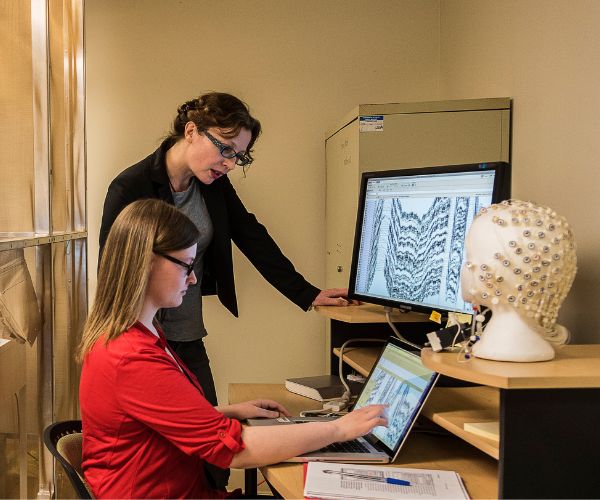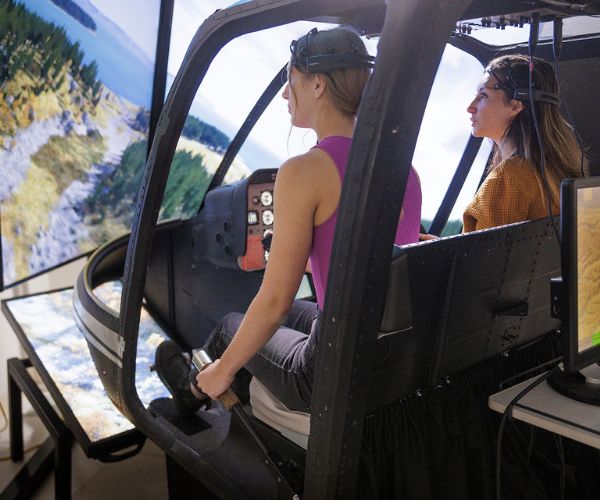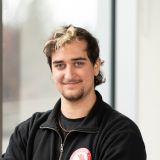Program Details
Cognitive Science involves the study of cognition, perception and emotion from a wide range of perspectives. Despite the many different methodologies they use, cognitive scientists are united in their interest in the mind — and the brain.
Researchers in our program (students and faculty members) study the mind by combining the methods and theories of five disciplines: psychology, philosophy, linguistics, neuroscience and computer science. This interdisciplinary approach allows unique insights into human understanding, thought, perception, language and emotion.
Exceptional Labs and Resources
Assist our world-renowned faculty in their diverse research areas. You can take advantage of a variety of on-campus research facilities, including those associated with the Visualization and Simulation Centre, the Science of Imagination Lab, the Language and Brain Lab, and more.
Concentrations
As a student, you can develop your expertise in one of five concentrations:
- Biological Foundations of Cognition
- Cognition and Computation
- Cognition and Psychology
- Language and Linguistics
- Philosophical and Conceptual Issues
Students who have attained third-year standing and meet the minimum CGPA requirement have the option to also enroll in the Artificial Intelligence and Cognitive Modelling stream.
Work Experience
The Honours Thesis allows you to develop an area of independent research alongside a faculty supervisor. You will graduate with valuable research experience, specific skills in identifying and analyzing problems, and a defined area of expertise.
The Honours Project allows you to gain hands-on experience and prepares you for a career in cognitive science. Working in groups, you will investigate a compelling question in cognitive science and complete an original research project. This experience transforms you into a confident researcher ready to enter the competitive job market or further your education.
A Co-op option is available. Students have the option to gain valuable, paid work experience in their field of study ultimately ensuring a significant advantage in the job market. Co-op allows students to develop professional skills, explore the various career paths, build networks and apply classroom knowledge in the workplace. Cognitive Science students have held positions in government, media, post-secondary institutions, high-tech, banking, investment firms and historical societies.

Get started in Carleton360 to receive tailored information on our programs, student services and community.

Career Outcomes
Explore your passions, refine new skills and discover the career that’s right for you.
As a graduate of Carleton’s Cognitive Science program you will be well-equipped with the analytical, communication and research skills necessary for a wide range of career paths.

Sample Courses
CGSC 1001 - Mysteries of the Mind
Challenges faced in understanding the mind, and some of the approaches cognitive science has brought to bear on them. Topics may include the nature of knowledge, how we learn, the extent to which human thinking is rational, biases in thinking, and evolutionary influences on cognition.
CGSC 3601 - Artificial Intelligence and Cognitive Science
An introduction to the contribution of artificial intelligence and computer modeling of cognitive processes to cognitive science.
Visit the Undergraduate Calendar to view a comprehensive list of course offerings for this program and discover the exciting things Carleton students are learning in the classroom!
The Cognitive Science program offered the flexibility to explore my interests, ask meaningful questions, gain skills in critical thinking and learn diverse techniques. I chose the Cognition and Psychology concentration because it highlights expertise across the range of disciplines needed to understand the mind and cognition. I found Cognitive Science faculty to be very open and supportive of undergraduate students. The Cognitive Science Student Association also creates lots of opportunities for students to meet professors and ask questions.




